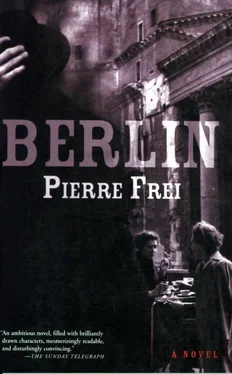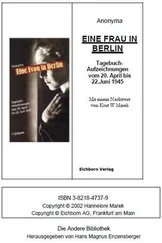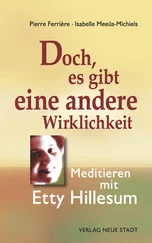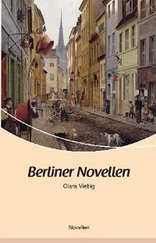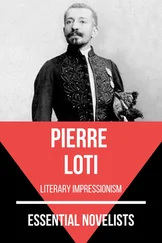She put her arms around his neck. 'I think you ought to consider all this very carefully. Because you'll never get rid of me again.'
'If you like, I'll find out whether we can get married in Berlin. Then we could ask your family, and a few friends. Klaus Dietrich and his wife, for instance.'
And that good-looking Russian with the white sports car?' she teased him.
'Maxim Petrovich? Why not? What about your parents? You must introduce me to them.'
'Father will be delighted. Mother will burst into tears. Both for the same reason: because I'm going to America. I'll fix a time for us to go and see them next week.'
He pulled her close. 'Will you stay tonight, or shall I drive you home?'
'Would you take me home, please? I have to digest all this.' She picked up her shoulder bag. 'That murderer — will you catch him soon?'
'He's very clever. He could even be taunting us. Inspector Dietrich thinks it was no coincidence that his latest victim was found hanging from the third floor.'
'Who was she?'
'Marlene Kaschke, one of the usherettes at the Uncle Tom cinema. Do you remember — those girls with the funny bows in their hair? She obviously knew her murderer. He was visiting her at her home after curfew.'
'Poor thing,' said Jutta, her voice filled with pity.
FRIDAY WAS PAY day. Lene could tell from the strength of the alcohol on her father's breath whether he'd drunk more than half his wages on the way home. More than half meant she'd have to go and see Herr Pohl at the front of the building. He had a skull shaved bald, he smelled strongly of cologne, and he would watch calmly as the fourteen-year-old undressed. Sometimes he fingered her first, sometimes he sat her straight astride his prick, which luckily wasn't very large. Then Herr Pohl would begin snorting, clutching her tight.
Not that it hurt. Lene got the painful part behind her at the age of eight, the first time she was told, 'You go off to Herr Pohl now and ask him to wait for the rent. And don't make a fuss about it.' No, it didn't hurt now, it was just damp and cold in Herr Pohl's basement apartment, summer and winter alike, and Lene shivered, waiting for the moment when the caretaker would finally be finished and she could get dressed.
And tell your Dad he's got to pay next week, see? Otherwise it's eviction for you lot,' Pohl told the girl as she left.
'Eviction', that dreaded word, loomed over the back yards of Berlin- Moabit like the black smoke from the AEG and Borsig chimneys. For the Kaschkes, father, mother, Marlene and her two little brothers, the bleak picture of a family turned out on the street with their few sticks of furniture and no idea where to go was a familiar sight. Egon Kaschke was on good terms with his foreman at Siemens and had overtime now and then, earning a little extra. That saved them from the worst, usually at the very last moment.
Lene climbed back into the daylight that filtered grudgingly into the four back yards of the five-storey tenement at 17 Ri benstrasse. The yards were evil-smelling playgrounds for rickety children and stout rats. A football goal had been marked out in the second yard, and at the age of six Marlene had dived for balls there like a boy. She kept them out most of the time.
Each yard measured twenty-eight square metres, laid down in the building regulations of 1874 as the minimum size for horse-drawn fire engines to turn. Now, in 1926, the Berlin firefighting service had long since been motorized, and a start had been made on building pleasant housing estates for workers in Britz and Zehlendorf. But these were not available for the likes of the Kaschkes.
Alfred Neubert was leaning against the wall in the passageway between the third and fourth back yards. He wore a suit, collar and tie, which in itself amounted to a challenge to this wretched environment. He nodded to her. 'Hello, Lene, how's things?'
'You back, are you?' It was a long time since she'd seen Fredie, but she recognized him at once, in spite of his stylish moustache. Fredie was nineteen, dark and good-looking, and at the age of thirteen had realized that there was only one way out of Riibenstrasse. He had embarked on his career in the urinals of Alexanderplatz, and continued it in the Tiergarten, where he would go behind the bushes with real gentlemen. The second porter at the Bristol Hotel finally recruited him as a pageboy. The head porter rented out the hotel pageboys to male guests.
A rich Englishman took a fancy to the pretty boy. His mentor travelled the world with him for two years, and then left him for a handsome Moroccan boy in Mogador, abandoning him without a penny. Walking by night and day, Fredie followed the couple to Marrakesh. There he beat up the pederast in cold blood and took his travel funds, all of two hundred pounds sterling. Lord Trevelyan sent to London for more money rather than going to the authorities.
Once back in Berlin, the thief paid his loot, over four thousand Reichsmarks, into a dozen different savings accounts. Besides the money, he had acquired a knowledge of English and French, good manners, and a deep and abiding hatred of men like Lord Trevelyan.
'Just dropped in to see my mother.' Fredie had shaken off the accent of RUbenstrasse and now spoke the Prussian-tinged German of the Berlin upper classes. 'What about you? Still being nice to Pohl?'
'Got anything against it?' Lene spoke in the Berlin working-class dialect that had once been natural to Fredie too.
Against your being such a fool?' Fredie dug his thumb and forefinger into his waistcoat pocket and brought out a silver one-mark coin. To Lene it was a fortune. 'Here, that's your bus fare. Take the bus from Turmstrasse to Kantstrasse. You get out there and turn right. Weimarerstrasse is on the first corner. Turn right into it. Number 28, back of the building, third floor left, name of Wilke. Ring three times and I'll open the door. Got it?'
'I'm not daft.'
'Come on Tuesday afternoon.' She didn't ask what he wanted her to come for, so overwhelmed was she by this invitation into a different world.
She didn't break into the money, although she was tempted by the thought of riding on the bus for the very first time in her life, preferably on the top deck. Even climbing the spiral stairs to get up there would have been an adventure. But she remained steadfast. She set off on foot at two on Tuesday. She had put on the white lace scarf that Grandmother Mine had left her, the most precious thing she possessed.
She would have walked the long distance faster but for the shop windows, which held displays that were increasingly lavish with every step she went further west. A milliner was showing the most extravagant creations. In RUbenstrasse, such a display would have set off angry protests. Marlene counted thirty different models of ladies' shoes in the window next to the milliner's. She compared them ruefully with her shapeless, oldfashioned button boots. They had belonged to her mother's sister Auntie Rosa, who died of tuberculosis.
She couldn't tear herself away from the display in a butcher's shop. A mountain of ground beef lay on a silver platter, its red appetizingly speckled with white fat, and garnished with onion rings inside which little mounds of plump capers nestled, seasoned with ground pepper and salt crystals. A round loaf of rye bread and a bottle of brown Botzow lager completed this handsome still life. An enticing message in black writing on a celluloid tag stuck into the meat read '30 pfennigs a portion'. Lene tightened her grip firmly around her one-mark coin.
The window of Hefter's contained a lavish platter of sliced meats, surrounded by cans of other delicacies. Next to it, rich and yellow, lay a sphere of butter: you could tell it was freshly made from the pattern left by the butter pats. Lene knew only the unpleasant-smelling margarine brought from the corner shop where thin, blue, skimmed milk dripped from a tap. Her mother gave this milk to her younger son. Her breasts had dried up when she was suckling Lene.
Читать дальше
